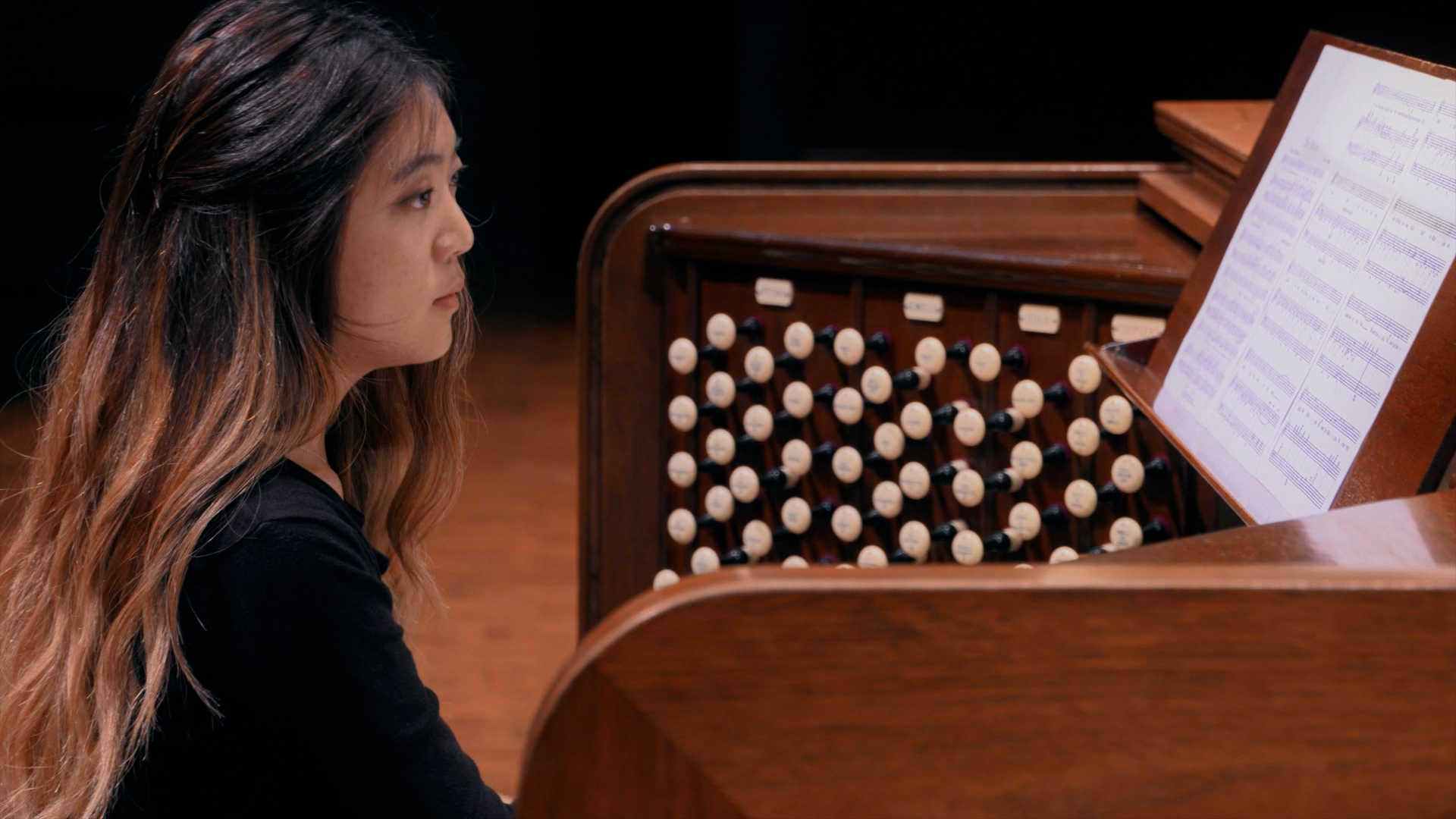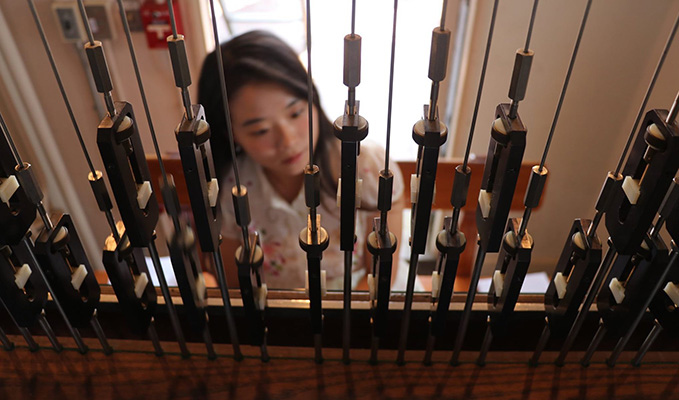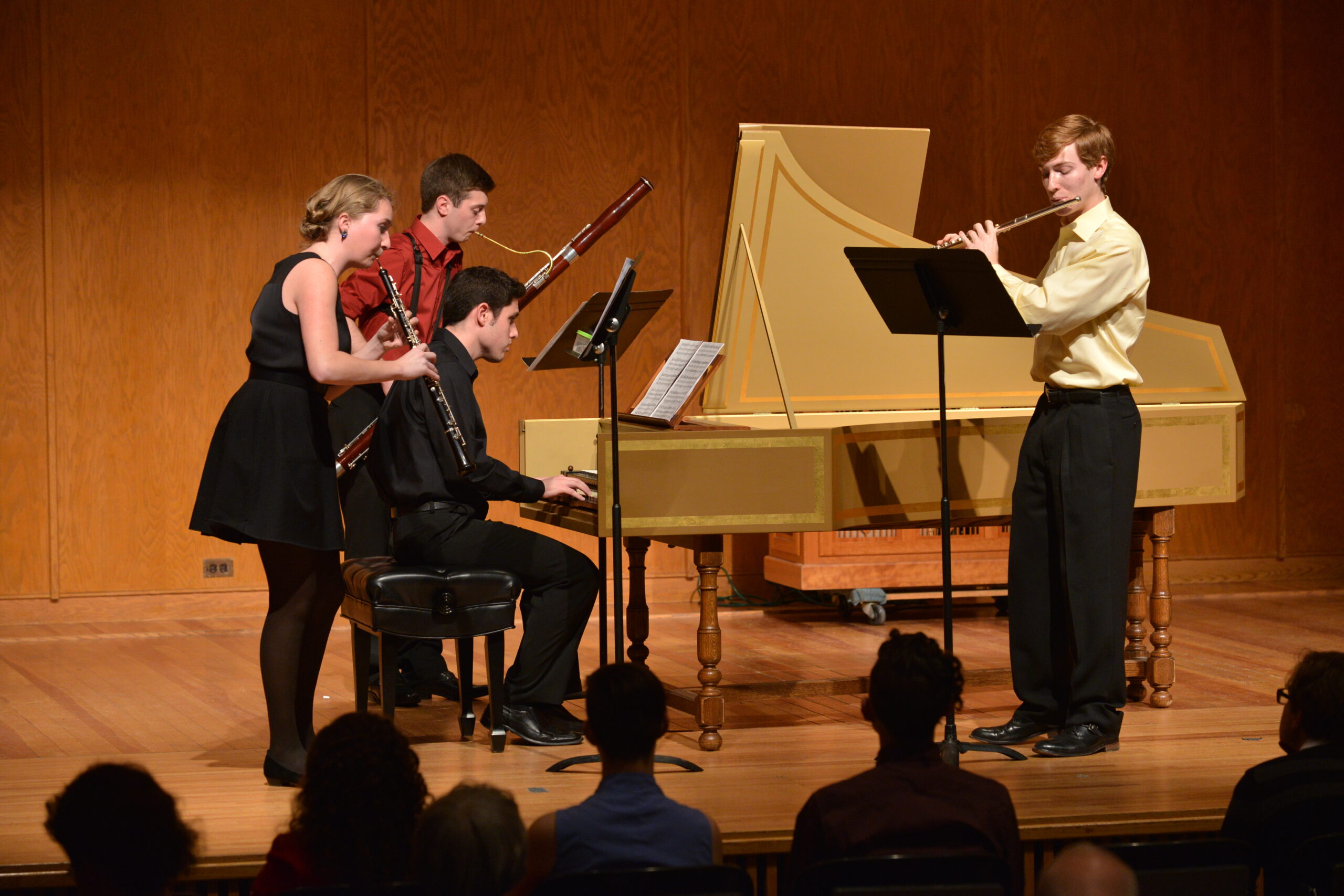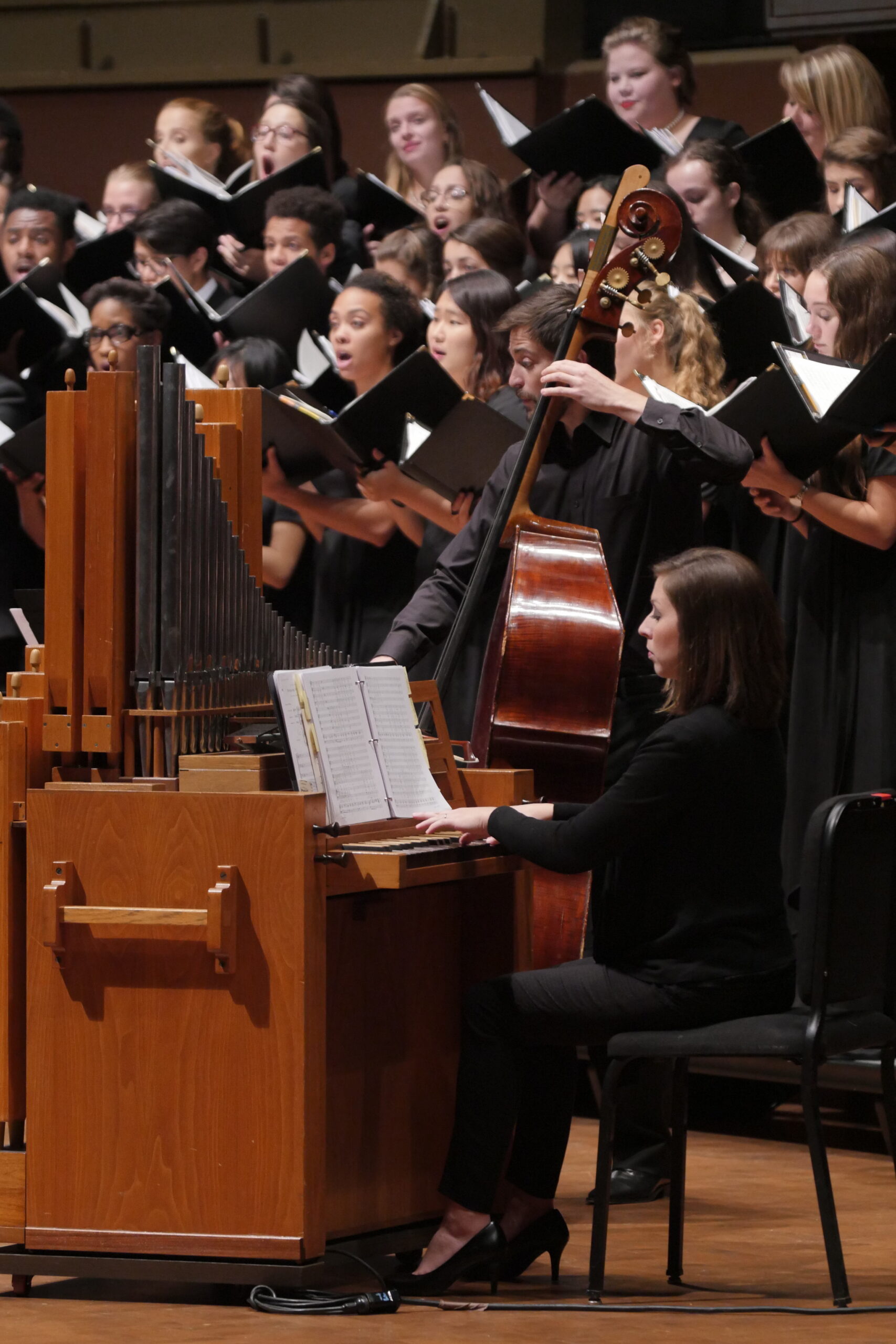Bachelor of Music in Music Education, Instrumental
Designed for students who wish to teach instrumental music in elementary and secondary schools. Applicants should have an extensive background in at least one band or orchestral instrument, including private lessons and experience in bands or orchestras.
Dual Degree in Music Performance
The Dual Degree in Music Education and Performance is designed for those who wish to pursue additional performance studies while earning a bachelors degree in music education, and generally requires an additional year of study.
Curriculum
The Bachelor of Music in Instrumental Music Education requires a minimum of 130 credits: coursework is composed of 40 hours of performance and a minimum of 25-26 non-SMTD credits. SMTD coursework to include:
- Private lessons
- Music Education
- Music Theory
- Musicology
- Ensemble participation
- Piano
- Conducting
- Student teaching
Silent Advisor
Degree requirements and term-by-term layout for current students.
Faculty
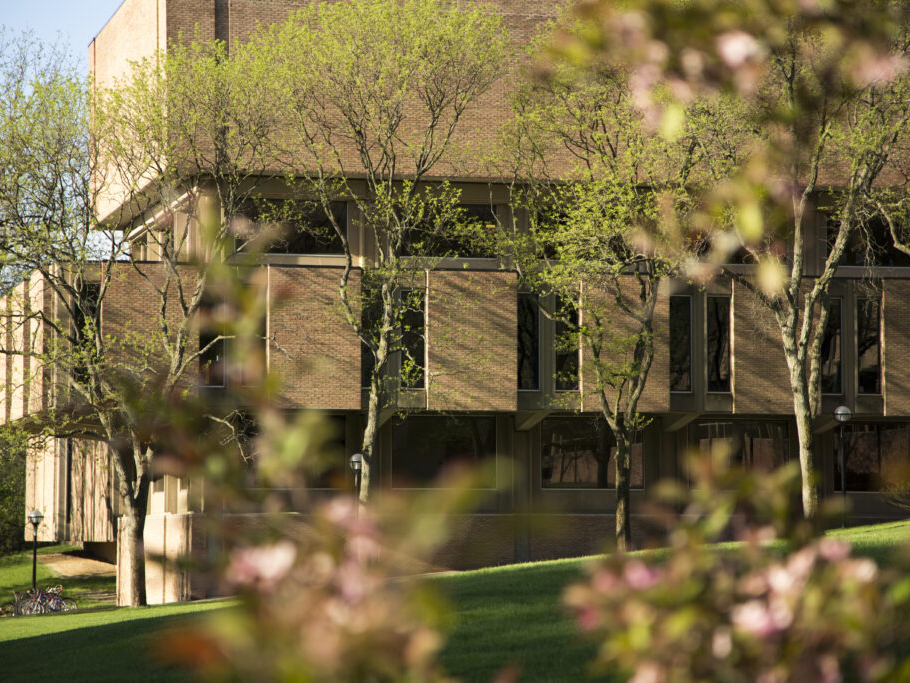
Stephanie Christensen

Colleen M. Conway
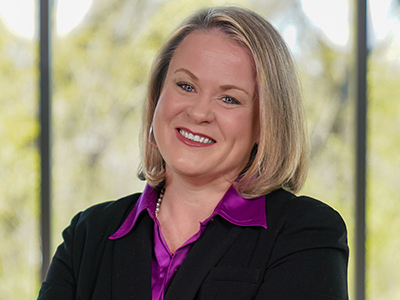
Kate Fitzpatrick
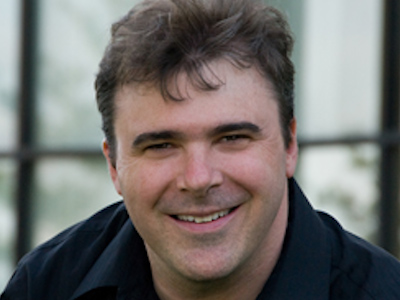
Michael Hopkins

Marie McCarthy
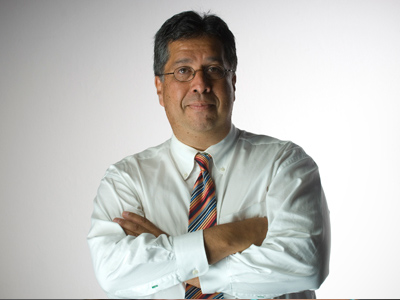
Carlos Xavier Rodriguez

Julie Skadsem
Performance Opportunities
From large ensembles in celebrated concert halls to chamber groups in intimate recital spaces, performance opportunities across all disciplines abound, with nearly 900 student performances each academic year. Whether your focus is on early, classical, or contemporary music, whether your passion is for jazz, electronic, or world music, there is an ensemble—or in many cases, multiple ensembles—to suit your interests, including specific opportunities for percussion, piano, and organ & carillon. For students in theatre & drama, musical theatre, dance, and opera, opportunities abound in both professionally produced and student-run presentations.

